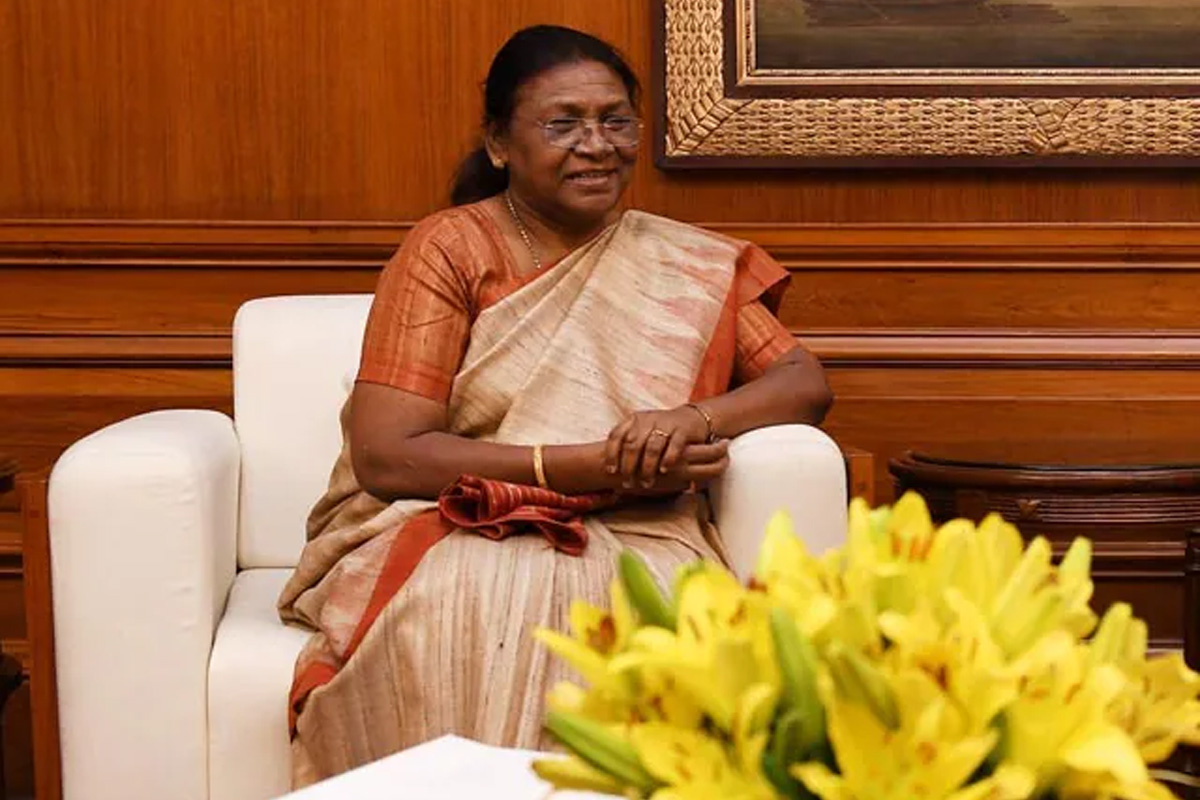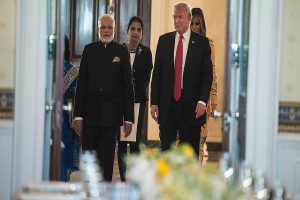President Droupadi Murmu on Tuesday announced that Indian-origin Mauritians of the seventh generation will be eligible for the Overseas Citizen of India (OCI) card.
“… I have great pleasure in informing you all that my government has just approved a special provision under which Indian origin Mauritians of the 7th generation will also be eligible for the Overseas Citizen of India (OCI) Card.
Advertisement
“This will enable many younger Mauritians of Indian origin to become overseas citizens of India, and to reconnect with the land of their ancestors,” she said at the state banquet hosted by Mauritius Prime Minister Pravind Kumar Jugnauth at Port Louis.
The president is currently on a state visit to the island nation to attend the National Day celebrations as chief guest.
Murmu also expressed confidence that India’s forward-looking National Education Policy will tap into India’s demographic dividend to become a power house of innovation that enhances the well being of humanity.
“In this exciting journey into the future, India looks forward to partnering its special friends, like Mauritius. Each year, 400 Mauritians are trained in India under our Indian Technical and Economic Cooperation (ITEC) programme and about 60 Mauritian students receive scholarships to pursue higher education in India. It is a matter of pride for us that many among them occupy high positions in the Mauritian bureaucracy and public life today,” she noted.
The president further said more than 500 Mauritian students have also benefited from India’s e-VidyaBharatiand and e-ArogyaBharati distance learning programmes since 2020.
“Hundreds of Mauritian youth have also been reconnecting with their Indian roots by visiting India under the Know India Programme, and several other exchange programmes,” she said.
She also underlined how India sees Mauritius as a close maritime neighbor, a cherished partner in the Indian Ocean Region, and a key player in our Africa outreach. She said her country’s aspiration is that Mauritius continues to progress as a leading economy and as a voice for peace, stability and prosperity in the strategically-important Indian Ocean Region.
On the National Day celebration, Murmu said, “Our two countries continue to stand shoulder to shoulder as independent nations, through good times and bad. Our relationship has grown stronger through the decades, whether it is securing the shared waters of the Indian Ocean together, or sharing our Covid vaccines during the pandemic; whether it is bolstering our capacities across sectors, connecting our economies and our people, or supporting one another in global platforms.”
The president also mentioned the Metro project, the new ENT Hospital, the new Supreme Court building, the 8 MW Solar Power plant and the many other India-assisted development projects, terming them “visible symbols of India’s commitment to support the wellbeing of all Mauritians”.
“The participation of a large Mauritian delegation at India’s flagship diaspora event – the Pravasi Bharatiya Divas – in Indore last January, and the participation of Mauritius as our ‘Special Invitee’ during our G20 Presidency, are testimonies to this,” she added.
During the visit, President Murmu and Mauritius Prime Minister Pravind Jugnauth will jointly inaugurate 14 India-assisted projects, showcasing the growing expanse and multifaceted nature of India’s development partnership.
Her visit comes days after Prime Ministers Narendra Modi and Jugnauth jointly inaugurated a new airstrip and a jetty along with six other community development projects in Agalega Island.
According to an MEA release, the president will also witness the exchange of the key bilateral agreements that seek to strengthen the robust bilateral institutional collaboration and capacity-building cooperation between the two countries.











